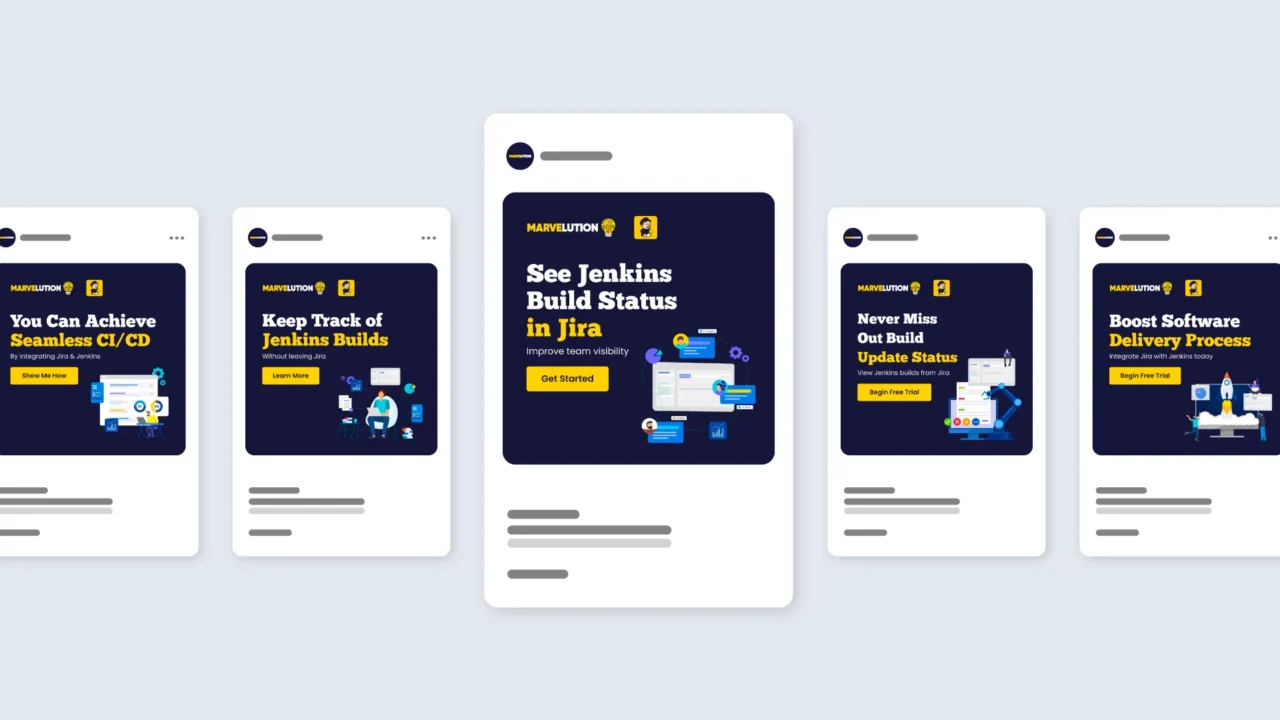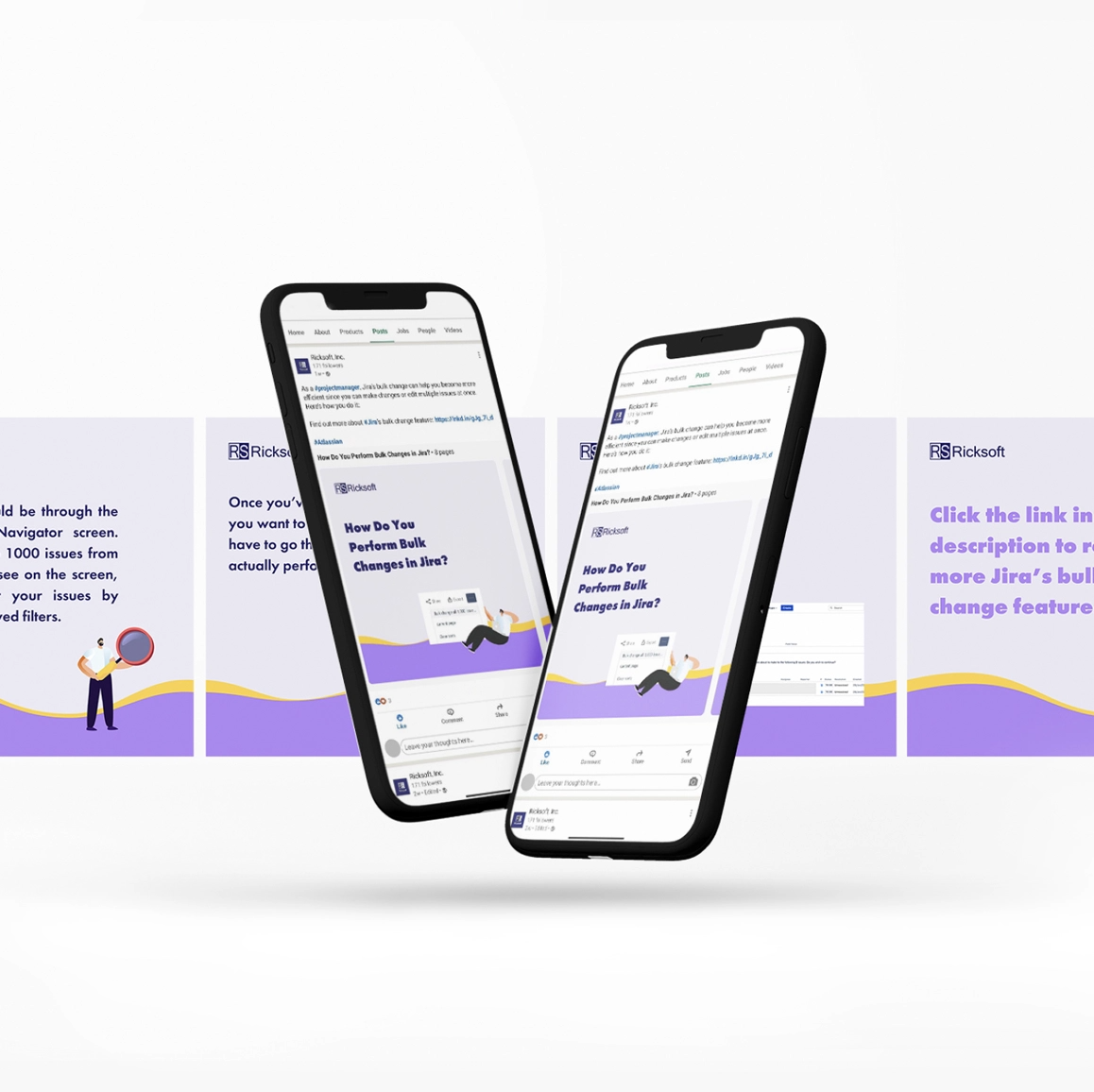Demand Generation, Go-to-market Campaign, Marketing Strategy
increase in conversions
decrease in cost per acquisition (CPA)
increase in conversion rate (CVR)
At a glance
Our client is an Atlassian Partner that specializes in productivity tools for teams in the Atlassian Ecosystem. One of their flagship products is an app that allows users to create Confluence pages directly from Jira to enhance collaboration and knowledge management for teams. Struggling with low conversion rates, they partnered with Brighttail to revamp their paid advertising strategy. By focusing on a new set of keywords and optimizing landing page content, the collaboration resulted in a 1,150% increase in conversions, a 94.6% decrease in CPA, and a 1,775% increase in CVR. This successful campaign not only enhanced their market positioning but also underscored the importance of strategic keyword selection and content alignment in digital marketing.
The challenge
After doing some preliminary research, we quickly realized that their keyword strategy was off the mark. They were focusing on keywords centered around the app’s name and features, which seemed logical at first but proved to be too generic. This broad approach posed several significant challenges that we needed to address.
First, the generic targeting made it difficult for potential users to find the app when searching for specific solutions. This resulted in low visibility in search results and limited organic traffic.
Second, the misalignment between the keywords and user intent was a critical issue. After pivoting to “knowledge management” keywords, which is the most relevant use case for their app, we realized that people weren’t finding the app because the existing generic keywords didn’t match their needs. Even when the app did appear in search results, it wasn’t attracting the right audience, which in turn led to lower conversion rates.
Third, they couldn’t gather much actionable data. The broad keywords didn’t provide clear insights into user behavior and preferences, making it difficult to optimize marketing efforts effectively.

Our strategy
and work
Upon analyzing the landscape, we discovered a golden opportunity: a pool of knowledge management-related keywords that had substantial search volume and surprisingly low competition. None of their competitors were targeting these keywords in their digital advertising campaigns. This gap provided us with an easy entry point for our Google Search ad campaign, allowing us to capture existing demand and drive significant website traffic.
We launched a Google Search campaign specifically targeting individuals actively seeking knowledge management solutions within the Atlassian Ecosystem. This strategic approach enabled us to reach a highly relevant audience, driving not only traffic but also meaningful engagement with potential users.
Our campaign was designed to gather insightful data on keyword performance, related search terms, and audience interactions. By continuously monitoring this data, we were able to maintain an agile and responsive approach, which helped us identify gaps and optimize the campaign for better performance.
Case in point: We noticed early on that the campaign’s performance was not meeting our expectations. We faced high CPAs, which was concerning. However, we noticed that people were still engaging with the ads, and their search terms were relevant to our targeted keywords. This indicated that the issue was not with the keywords themselves but with the landing page.
Upon further investigation, we identified a crucial gap: the landing page lacked sufficient integration of knowledge management keywords. This lack of relevance between the user, ads, and landing page content was hampering our results.
We collaborated closely with our client to optimize the landing page, incorporating the new keywords more effectively. This optimization created a seamless connection between the ads and the landing page, significantly enhancing the user experience.
The Results
The combination of an effective initial keyword strategy and a crucial optimization exercise mid-campaign drove immediate results. After three months of running the Google Search campaign, the results were nothing short of remarkable. We achieved a staggering 1,150% increase in conversions, a 94.6% decrease in cost per acquisition (CPA), and a 1,775% increase in conversion rate (CVR).
This case study highlights the critical importance of strategic keyword selection and content alignment. By ensuring strong relevance from ads to the landing page, we were able to create a more effective and cost-efficient ad campaign for our client. The success of this campaign underscores the value of continuous optimization and strategic alignment in digital advertising.


